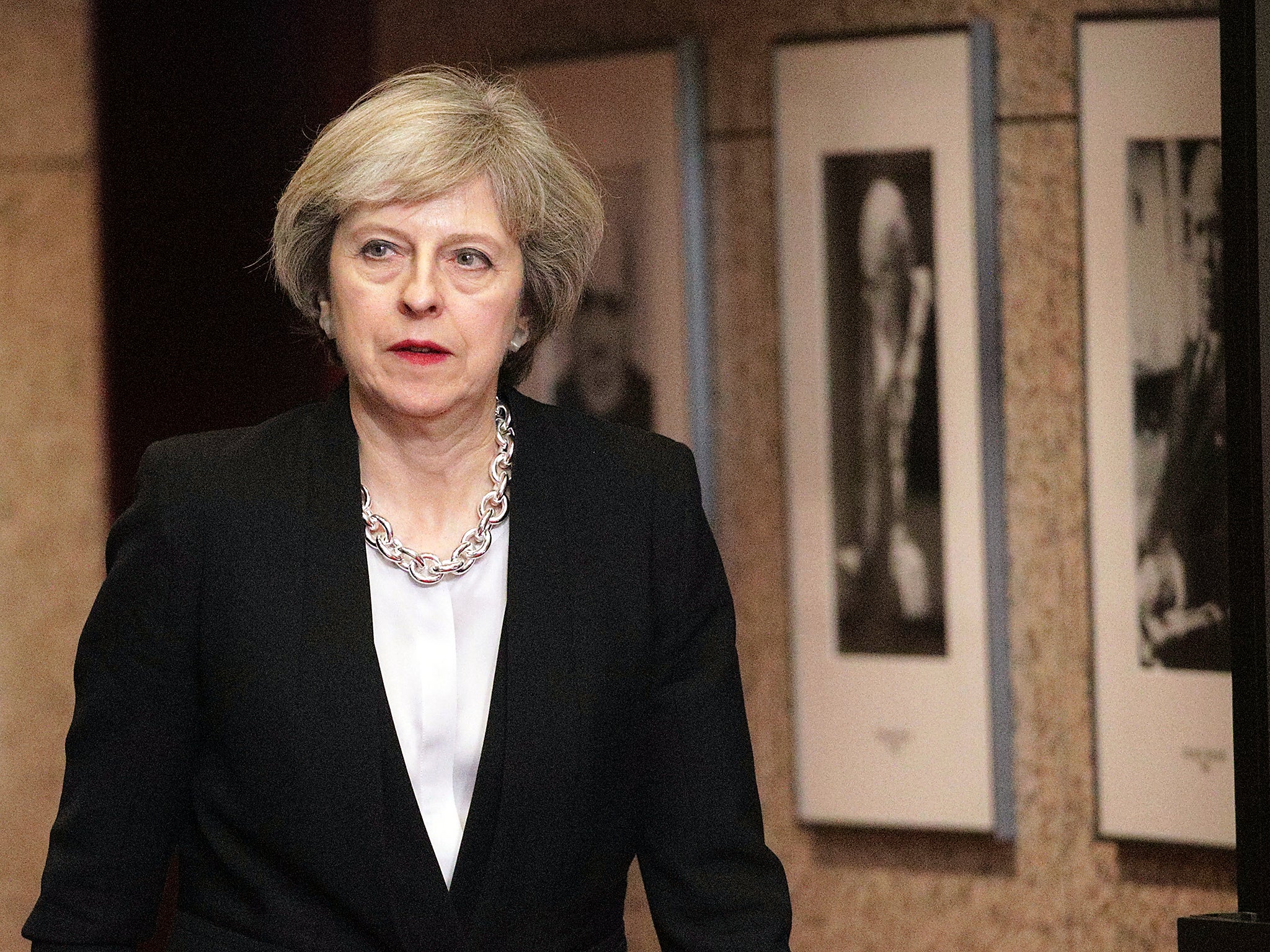This is why Theresa May would be wise to call an early election in 2017
A general election in the next 12 months would be healthy for our democracy. If the economy worsened and living standards fell, Ms May might be judged by voters as lacking legitimacy – as Gordon Brown was after ducking an early election in 2007

Your support helps us to tell the story
From reproductive rights to climate change to Big Tech, The Independent is on the ground when the story is developing. Whether it's investigating the financials of Elon Musk's pro-Trump PAC or producing our latest documentary, 'The A Word', which shines a light on the American women fighting for reproductive rights, we know how important it is to parse out the facts from the messaging.
At such a critical moment in US history, we need reporters on the ground. Your donation allows us to keep sending journalists to speak to both sides of the story.
The Independent is trusted by Americans across the entire political spectrum. And unlike many other quality news outlets, we choose not to lock Americans out of our reporting and analysis with paywalls. We believe quality journalism should be available to everyone, paid for by those who can afford it.
Your support makes all the difference.Theresa May will enter 2017 in a strong position, comfortably ahead in the opinion polls and still enjoying something of a honeymoon phase. Amid the chaos after the vote for Brexit in June, Ms May brought stability and reassurance when the country desperately needed it. She was the right person to succeed David Cameron.
Yet, almost six months on, we still know remarkably little about our new Prime Minister. Her Conservative leadership campaign was cut short when her rivals fell by the wayside, and she was anointed by Tory MPs without a ballot of the party membership, let alone a mandate from the wider electorate.
So there is a strong case for Ms May to ask the country for such a mandate in 2017. Some Conservatives will urge her to seek a general election for narrow party political advantage, confident of victory against Labour while it is led by Jeremy Corbyn. Ms May seems intent on delaying the election until the next scheduled one in 2020, and would change her mind only if Parliament threatened to block Brexit, which currently looks unlikely.
Yet a general election in the next 12 months would be healthy for our democracy. If the economy worsened and living standards fell, voters might judge that she lacked legitimacy, as Gordon Brown did after ducking an early election in 2007.
An election would allow the country to make a proper judgement on the most momentous decision facing it since the Second World War. Although some Leave supporters said in media interviews during the referendum campaign that the UK should quit the single European market, it is doubtful whether many voters noticed or understood the implications for the economy. An election campaign would not rerun the referendum but allow the public to make an informed choice between soft and hard Brexit, and the crucial trade-off between controlling immigration and market access. It would force Ms May to decide and then spell out what Brexit really means rather than hide behind the protective shield of EU negotiations, which would not be affected by a UK election as they will not reach a meaningful stage until after the German elections next autumn.
An election victory for Ms May would give her an undisputed mandate for the Brexit she wants and five years to implement the social reforms she wishes to pursue.
Although many Labour MPs fear privately that a 2017 election would be disastrous for their party and themselves, a contest would in some ways be healthy for Labour. It would force the party to come off the fence on Brexit and to resolve the differing lines on immigration coming from its senior figures. An election would also demonstrate whether Mr Corbyn has what it takes to perform at the highest level and can extend his appeal from the faithful to millions of voters.
A 2017 election might not be in Labour’s interests, but, as Mr Corbyn acknowledged in his interview with The Independent last week, the party could not duck one by using the Fixed-term Parliaments Act (which stipulates an election every five years) to block one.
An early election would certainly suit the Liberal Democrats, and test their appeal to the 48 per cent who voted Remain. The party is back in business after its victory at the Richmond Park by-election but, without a general election, will struggle to remain on the public’s radar with just nine MPs. If it secured a handful of additional seats and beat Labour to second place in a number of key constituencies (a real possibility, given their clarity on the matter of Europe), it would be a powerful force in British politics again.
As she weighs her options for the year ahead, Theresa May should consider seriously calling an election that would be in her party’s as well as the national interest.
Join our commenting forum
Join thought-provoking conversations, follow other Independent readers and see their replies
Comments